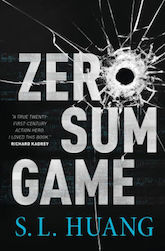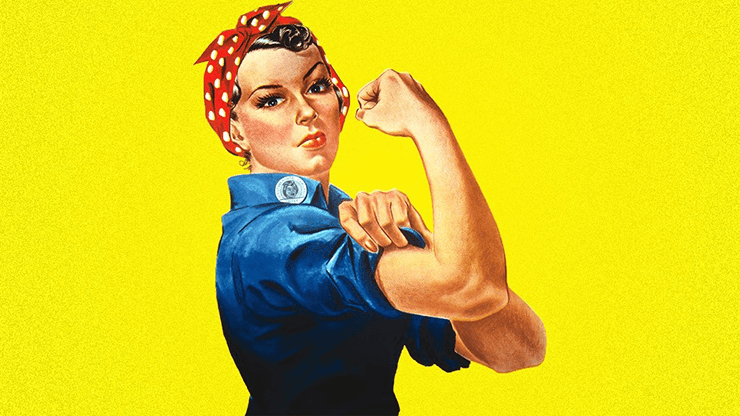Most of the time, I hear the term “power fantasy” used as a criticism.
“That book is such a white boy power fantasy.”
“It’s just the author’s power fantasy.”
“This series is a gross nerd power fantasy with awful female characters.”
Let’s linger on that last one for a moment, and consider that we don’t usually consider a “nerd power fantasy” something that would star a woman as the main protagonist, the geek who gets her due. Instead, the criticism of something as a nerd power fantasy often grows out of the female characters being sidelined or seconded in favor of a less-competent dude (see: Ant-Man, Kick-Ass, The Matrix, and so many more).
As someone who grew up nerd, I understand the geek desire for power fantasies. I well remember feeling the outsider because of the way I read too much, had Star Wars memorized, or made jokes about gravity in conversation. And as a child, I devoured fiction that felt like it centered people like us, from Ender’s Game on up.
But as I’ve grown into adulthood and become more aware of the real-life power structures surrounding us all, from politics to culture, I’ve also come to understand—and share—the criticisms. Let’s just say, if it feels like the “hero” of the story is going to be a carbon copy of the tech bro who just condescended to me yesterday, and that hero character is going to win at everything despite having no objectively better skills than anyone else in the novel… well, I’m not even going to give it a try. That feels too much like real life, where I have to watch that same tech bro get promoted or paid above the many more competent people around him.
This article, however, is not an argument against power fantasies. It’s an argument for them.
In particular, there’s something very potent and compelling about female power fantasies. I’m especially drawn to the ones that let us take control of every part of society that tends to put us at the lower end of the power differential. These kinds of stories enable us to push back against the daily, monthly, yearly friction of injustices and say, through the lens of fiction—we claim our own greatness. We do not surrender. This is a world where we don’t stand down and nobody can make us.
This feels especially necessary in a political climate in which women’s rights are not only under threat, but in which it seems for every predator who faces consequences for sexual assault, a different one is put into yet another position of power over us. Escapism from such helplessness in the form of our own power fantasies, telling tales of adventure in which we are the heroes with extraordinary power, where we can take control—what kinds of stories could be better?
Far from being a bad thing, I think these types of power fantasies are valuable. Are necessary. Are resistance.
All this is, of course, true for a lot of groups besides women. I don’t only want to see female power fantasies. I want to see nonbinary power fantasies. Disabled power fantasies. Immigrant power fantasies, trans power fantasies, autistic power fantasies. The power fantasies of people of color and queer people. I want to see people who often feel ground down or exhausted by the current societal structures write about worlds in which we are the unapologetic heroes.
Buy the Book


Zero Sum Game
I don’t mean to say this is the type of story all of us should write. But I want some of us to. I want them to exist.
And circling back—there’s no reason these stories can’t also be nerd power fantasies. Pretty much all of us SFF writers are nerds, after all, no matter our gender or ethnicity or sexual orientation, and we’ve dealt with the outsider status of our geekery along with whatever other helpings of difficulty life may have thrown our way. Which means we readers can have our cake and eat it too: we can have nerd power fantasies that don’t also risk reinforcing existing power structures.
I am so here for that. I would read the heck out of any one of those. Bring on the power fantasies.
I don’t see what I’m saying here as an argument against all straight white male nerd hero stories, either. That’s too sweeping a generalization to make sense; every story is going to rise or fall on its own merits and the thoughtfulness of its own creator. And thinking about the demographics of our heroes is only a start anyway. Instead, I’m arguing that power fantasies are, first, necessary and valuable escapism—but second, that the way we should approach them as creators and critics is to recognize and consider how a power fantasy narrative will interact with existing culture. Because, though there’s nothing inherently wrong with these types of stories, it’s also a legitimate criticism to say a specific one reinforces patriarchal power structures in its portrayal.
I’m arguing we must consider the ways in which we elevate our heroes above the people around them—and how that will play against the backdrop of readers’ real lives. And I’m arguing that, in this type of fiction, we should look deeply at who we’re giving our fantasy power to—compared to who gets it in real life.
Once we can do that? Give me all the nerd power fantasies, please.
S.L. Huang has a math degree from MIT and is a weapons expert and professional stuntwoman who has worked in Hollywood on Battlestar Galactica and a number of other productions. Her novels include the Cas Russell series (formerly known as Russel’s Attic). Her short fiction has appeared in Strange Horizons, Nature, Daily Science Fiction, and The Best American Science Fiction & Fantasy 2016.










